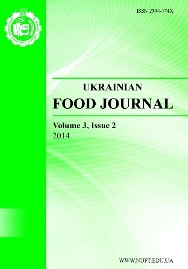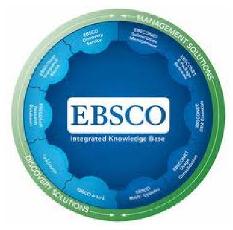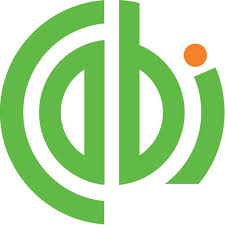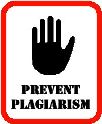- Editorial
-
Editorial
board -
Instructions
for authors -
Ethics, Privacy,
Copyright
Dear colleagues,
We inform you that:
1. Indeed, there is a war in Ukraine. The russian invasion continues. Ukraine is on fire. The russians are destroying our cities, villages and infrastructure, bombing universities, schools and research institutions, killing civilians, committing violence, rape and looting.
2. The Ukrainian Food Journal continues to work. Due to objective reasons, there may be delays in the Issues publishing and responses to letters.
We appreciate your support!
Ukrainian Food Journal publishes original research articles, short communications, review papers, news and literature reviews dealing with all aspects of the food science, technology, engeneering, nutrition, food chemistry, economics and management.
Studies must be novel, have a clear connection to food science, and be of general interest to the international scientific community.
Topic covered by the journal include:
Food engineering
Food chemistry
Food microbiology
Food quality and safety
Food processes
Economics
Automation of food processes
Food packaging
Food nanotechnologies
Periodicity of the journal 4 issues per year (march, june, september, december).
Reviewing a Manuscript for Publication
All scientific articles submitted for publication in “Ukrainian Food Journal” are double-blind peer-reviewed by at least two academics appointed by the Editors' Board: one from the Editorial Board and one, not affiliated to the Board and/or the Publisher.
Publication or submission charges
There are no publication or submission charges.
Editor-in-Chief
Olena Stabnikova, PhD, Prof., National University of Food Technologies, Ukraine
Scopus Author ID: 6603428133
ORCID: 0000-0003-4156-3021
Web of Science ResearcherID:
H-D-7663-2019
* Notes:
Editor-in-Chief in 2019-2021: PhD, Prof. Volodymyr Ivanov, National University of Food Technologies, Ukraine.
Scopus author ID: 35482715800,
Web of Science ResearcherID: H-1096-2018,
ORCID: 0000-0002-4456-994X
Editor-in-Chief in 2015-2019: PhD, Prof. Valerii Mank, National University of Food Technologies, Ukraine.
Web of Science ResearcherID: D-8732-2019
Editorial board
Agota Giedrė Raišienė, PhD, Lithuanian Institute of Agrarian Economics, Lithuania
Bảo Thy Vương, PhD, Mekong University, Vietnam
Cristina Luisa Miranda Silva, Assoc. Prof., Portuguese Catholic University – College of Biotechnology, Portugal
https://orcid.org/0000-0002-0495-3955
Cristina Popovici, PhD., Assoc. Prof., Technical University of Moldova
E-mail: cristina.popovici@toap.utm.md
Download CV
Dora Marinova, Prof., Curtin University Sustainability Policy (CUSP) Institute, Curtin University, Australia
https://orcid.org/0000-0001-5125-8878
Egon Schnitzler, PhD, Prof., State University of Ponta Grossa, Ponta Grossa, Brazil
https://orcid.org/0000-0003-2696-4441
Eirin Marie Skjøndal Bar, Dr., Assoc. Prof., Norwegian University of Science and Technology, Trondheim, Norway
https://www.researchgate.net/profile/Eirin-Bar
Godwin D. Ndossi, Prof., Hubert Kairuki Memorial University, Dar es Salaam, Tanzania
Jasmina Lukinac, PhD, Assoc. Prof., University of Osijek, Croatia
https://orcid.org/0000-0002-0998-0258
Kirsten Brandt, Dr., Newcastle University, United Kingdom
Lelieveld Huub, PhD, Global Harmonization Initiative Association, The Netherlands
Mark Shamtsian, PhD, Assoc. Prof., Black Sea Association of Food Science and Technology, Romania
María S. Tapia, Prof., Central University of Venezuela, Caracas, Venezuela; Corresponding Member of the Academy of Physical, Mathematical and Natural Sciences of Venezuela
https://orcid.org/0000-0002-3155-9355
Moisés Burachik, PhD, Institute of Agricultural Biotechnology of Rosario (INDEAR), Bioceres Group, Rosario, Argentina
Noor Zafira Noor Hasnan, PhD, Universiti Putra Malaysia, Selangor, Malaysia
Octavio Paredes Lopez, PhD, The Center for Research and Advanced Studies of the National Polytechnic Institute, Mexico.
Rana Mustafa, PhD, Global Institute for Food security, University of Saskatchewan, Canada
https://orcid.org/0000-0003-4941-5971
Semih Otles, PhD, Prof., Ege University, Turkey
E-mail: semih.otles@gmail.com
Download CV
Sheila Kilonzi, Karatina University, Kenya
https://orcid.org/0000-0001-7764-0004
Sonia Amariei, PhD, Prof., University "Ştefan cel Mare" of Suceava, Romania
Stanka Damianova, PhD, Prof., Ruse University “Angel Kanchev”, branch Razgrad, Bulgaria
https://orcid.org/0000-0002-7610-1794
E-mail: sdamianova@uni-ruse.bg
Stefan Stefanov, PhD, Prof., University of Food Technologies, Bulgaria
E-mail: stvstefanov@yahoo.com
Tetiana Pyrog, PhD, Prof., National University of Food Technologies, Ukraine
Oleksandr Shevchenko, PhD, Prof., National University for Food Technologies, Ukraine
Viktor Stabnikov, PhD, Prof., National University for Food Technologies, Ukraine
https://orcid.org/0000-0003-3738-8056
Umezuruike Linus Opara, Prof., Stellenbosch University, Cape Town, South Africa
Yordanka Stefanova, PhD, Assist. Prof., University of Plovdiv "Paisii Hilendarski", Bulgaria
Yuliya Dzyazko, PhD, Prof., Institute of general and inorganic chemistry of the National Academy of Sciences of Ukraine
E-mail: dzyazko@gmail.com
Download CV
Yun-Hwa Peggy Hsieh, PhD, Prof. Emerita, Florida State University, USA
Yurii Bilan, PhD, Assoc. Prof., Tomas Bata University in Zlin, Czech Republic
https://orcid.org/0000-0003-0268-009X
Oleksii Gubenia (managing editor), PhD, Assoc. Prof., National University of Food Technologies, Ukraine
E-mail: Ufj_nuft@meta.ua
Download CV
The Editorial Board of
«Ukrainian Food Journal»
invites you to publication of your scientific research.
Template file and samples of figures
Requirements for article:
Language – English
Recomended minimal size of the article (excluding the Abstract and References) – 10 pages in Microsoft Word.
All article elements (text, tables, figures) should be in Times New Roman, font size 14, 1 line intervals, margins on both sides 2 cm.
The structure of the article:
*Authors (full name and surname)
*Institution, where the work performed.
*Abstract. The structure of the abstract should correspond to the structure of the article (Introduction, Materials and methods, Results and discussion, Conclusion)
*Key words.
The main body of the article should contain the following obligatory parts:
*Introduction
*Materials and methods
*Results and discussion
*Conclusion
*References
If you need you can add another parts and divide them into subparts.
The abstract of the article should contain the following obligatory parts:
* Introduction (2-3 lines) * Materials and methods (3-5 lines) * Results and discussion (half of page) * Conclusion (1-2 lines).
The information about the author (Name, surname, scientific degree, place of work, email and contact phone number).
All figures should be made in graphic editor, the font size 14.
The background of the graphs and charts should be only in white colour. The colour of the figure elements (lines, grid, text) - in black colour.
Figures and EXCEL format files with graphs additionally should submit in separate files.
Photos are not appropriate to use.
References should be clearly cited in the body of the text:
Number of authors |
Style of citing |
1 author |
(Arych, 2019) |
| 2 authors | (Qi and Zhou, 2012) |
3 and more authors |
(Bazopol et al., 2021) |
Please, check references carefully.
The list of references should include works that are cited in the text and that have been published or accepted for publication.
All references mentioned in the reference list are cited in the text, and vice versa.
Cite references in the text by name and year in parentheses. Some examples:
(Drobot, 2008); (Qi and Zhou, 2012); (Bolarinwa et al., 2019; Rabie et al., 2020; Sengev et al., 2013).
Reference list should be alphabetized by the last name of the first author of each work.
If available, please always include DOIs links in the reference list.
Please, don’t use more than 2 cities simultaneously. Indicate only the specific source of information.
Reference style
Journal article
Please follow this style and order: author's surname, initial(s), year of publication (in brackets), paper title, Journal title (in Italic), volume number (issue), first and last page numbers. If available, please always include DOIs as full DOI links in your reference list (e.g. “https://doi.org/abc”).
Journal names should not be abbreviated.
Ivanov V., Shevchenko O., Marynin A., Stabnikov V., Gubenia O., Stabnikova O., Shevchenko A., Gavva O., Saliuk A. (2021), Trends and expected benefits of the breaking edge food technologies in 2021–2030, Ukrainian Food Journal, 10(1), pp. 7-36, https://doi.org/10.24263/2304-974X-2021-10-1-3
Book
Deegan C. (2000), Financial Accounting Theory, McGraw-Hill Book Company, Sydney.
Book chapter in an edited book
Kochubei-Lytvynenko O., Kuzmyk U., Yushchenko N. (2022), Spices for dairy products. In: O. Paredes-López, O. Shevchenko, V. Stabnikov, V. Ivanov (Eds.), Bioenhancement and Fortification of Foods for a Healthy Diet, pp. 157–178, CRC Press, Boca Raton, https://doi.org/10.1201/9781003225287-11
Online document
Mendeley J.A., Thomson, M., Coyne R.P. (2017), How and When to Reference, Available at: https://www.howandwhentoreference.com
Conference paper
Arych M. (2018), Insurance's impact on food safety and food security, Resource and Energy Saving Technologies of Production and Packing of Food Products as the Main Fundamentals of Their Competitiveness: Proceedings of the 7th International Specialized Scientific and Practical Conference, September 13, 2018, NUFT, Kyiv, pp. 52–57, https://doi.org/11.1016/22-33-85
Extended articles should be sent by email to:
Ufj_nuft@meta.ua
Ethics, privacy, copyright
Rules and regulations on academic ethics
The Editorial Office strictly follows all rules and regulations recommended for all academic and scientific journals by COPE - the Committee on Publication Ethics (the official web site:https://publicationethics.org/resources).
Inter alia, we would like to pay the attention of all our authors (especially potential ones) as well as the attention of all our reviewers to the following regulations of COPE which we treat as the most essential for our everyday activities
- All editors, from editor in chief to managing and guest editors, are responsible for guaranteeing all authors a reasonable balance between the freedom of expression on the one hand and academic integrity on the other
- At any point of time the authors of the already published articles have the right to request a retraction, publish an apology, clarification and/or correction. The managing editor is expected to support this intention of the authors, however, they may also request additional explanation before publishing such information.
- Editors are responsible for determining whether a potential submission really fits the journal’s scope and framework. The decision that the text does not fit either of them should be delivered directly to the author(s) together with the explanation why so and (optional) recommendation on alternative publication opportunities.
- Editors are responsible for explaining double-blind peer-review procedures to both authors and independent reviewers. All reviewers are supposed to get regular (at least once a year) email notifications with reminders and updates on the related rules and procedures
- Editors are responsible for annual revision of internal academic publishing rules and double-blind peer-review standards
- New editors do not have the right to reverse the decision of previously employed editors, the only exception being an external complaint filed regarding plagiarism or other academic misconduct.
- Editors are responsible for double confidentiality and proper encoding of all texts before they are being sent for blind review
- Articles containing criticism of previously published works (in this journal or elsewhere globally), encouraging scientific debate and/or presenting negative results should be treated equally to regular articles describing authors’ original results. Articles of this category should be also subject to standard double-blind peer-review.
- In case the editors have detected plagiarism and have sufficient evidence to prove it - they have the right, officially or independently, to contact the author’s employer, the Ministry of Education in the related country or other regulatory authority so that to report the case of plagiarism.
- If the case of plagiarism has been reported externally, the editors are expected to fully cooperate on it and provide all necessary evidence they have, with the only exception - the names of the blind reviewers involved in this case.
- Editors are seen as responsible for informing international databases and online libraries if there is a case of retraction. Editors, however, cannot be responsible for the timing of updates in the involved databases and libraries.
- This journal restrains from all advertising activities as such and concentrates on publishing activities. In exceptional cases advertisement can be published though. Published advertisement is supposed to be directly related to academic research, higher education and conferences within the scope of the journal.
- All situations presented as the conflict of interests should be resolved according to COPE regulations. In such situations editors (or publishers on their behalf) are expected to find a similar case among those described on the official site of the COPE and act accordingly.
Editorial privacy policy. GDPR compliance
Editorial Board and editorial office are strongly committed to maintain trustful relations with all authors and all reviewers.
In May 2018 we updated our internal rules and code of conduct so that to comply fully with the acting GDPR policies.
The core provisions of the editorial privacy policy are the following:
- Editors which are in direct communication with authors, current and/or potential, are responsible for keeping all personal data of the latter strictly confidential.
- The Editorial Board and the editorial office should not use any personal data provided by authors and reviewers for private purposes, including those of solely research/academic nature (customer survey or marketing research, for example)
- If the Board or the editorial office plans to conduct a survey among authors and/or reviewers, individuals participating in it must be informed in advance and must be asked for a signed permission.
- The Board and/or the editorial office is free to share personal information on the authors strictly in one case - when plagiarism has been detected and there is an ongoing formal investigation launched by a third party.
- Authors’ work affiliation and contact email are published on the introductory page of each article. This data is considered to be open-access. If an author objects to have their email published - they should inform the editorial office about this once their text has been approved for publishing (blind review results are available).
- Authors’ job affiliation is considered globally as being integral part of articles’ indexation in international databases, therefore, this sort of information is treated as open-source data and all authors are encouraged to provide their formal affiliation in the course of texts’ submission.
- The Editorial Board and the editorial office will never share personal contact information (telephone numbers, emails, skype name etc.) with any third parties, private or business.
- The minimum term of any personal data retention is 1 calendar year since the day of the first contact. The editors maintain the right to delete any personal data on the authors and/or reviewers earlier than 1 year if the text has not been approved for publication (reviewer is not cooperating with the editorial office anymore).
- If any individual has received an email from the editorial office due to technical error or human mistake (typo in an email address, for example), we ask them to delete this email as soon as possible and notify the sender as soon as possible.
- If you want all your personal data be deleted from our internal editorial records - please, contact our managing editor via email.
Copyright and Open Access License
Authors submitting articles for publication warrant that the work is not an infringement of any existing copyright and will indemnify the publisher against any breach of such warranty. For ease of dissemination and to ensure proper policing of use, papers and contributions become the legal copyright of the publisher unless otherwise agreed.
The following license will apply to the article: CC BY
The CC BY license lets others distribute, remix, tweak, and build upon your work, even commercially, as long as they credit you for the original creation. This is the most accommodating of licenses offered. Recommended for maximum dissemination and use of licensed materials.
The publisher will apply the Creative Commons Attribution Works 3.0 Unported License (CC-BY) to the Article for the purposes of publication in the journal on an Open Access basis. For further information, see the Open access options page. The full details of the license are available at:
http://creativecommons.org/licenses/by/3.0/legalcode











